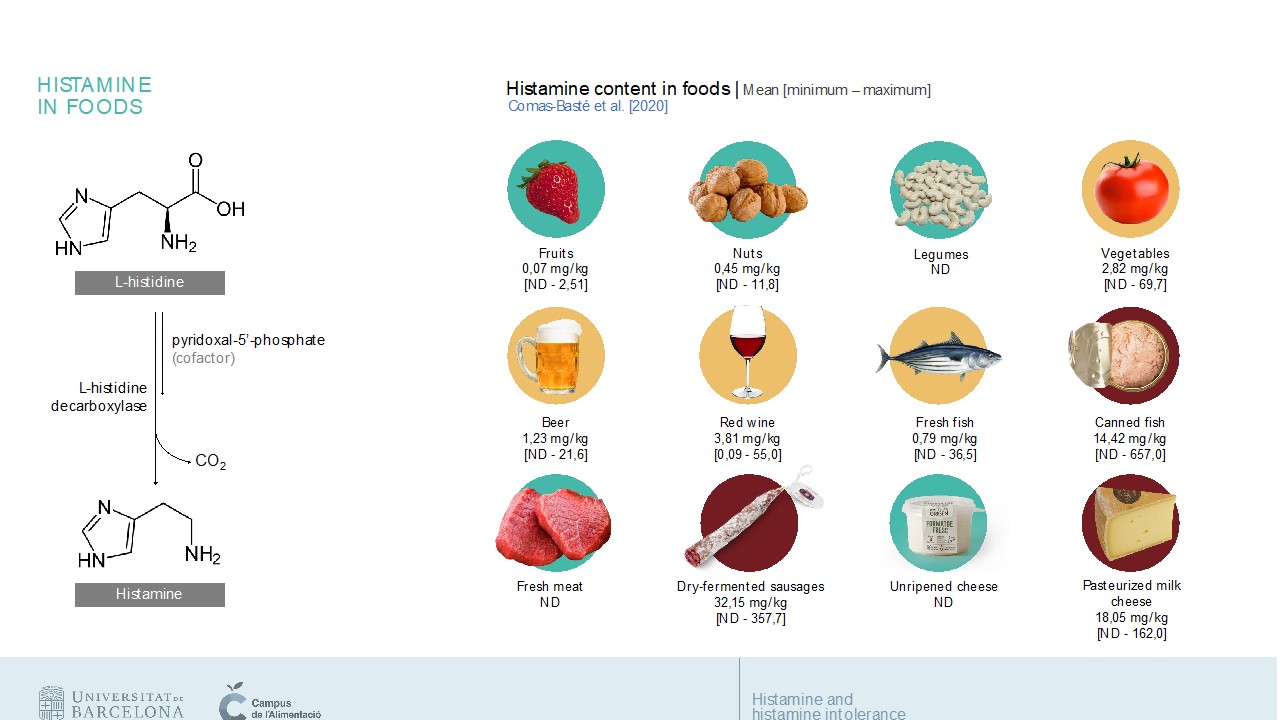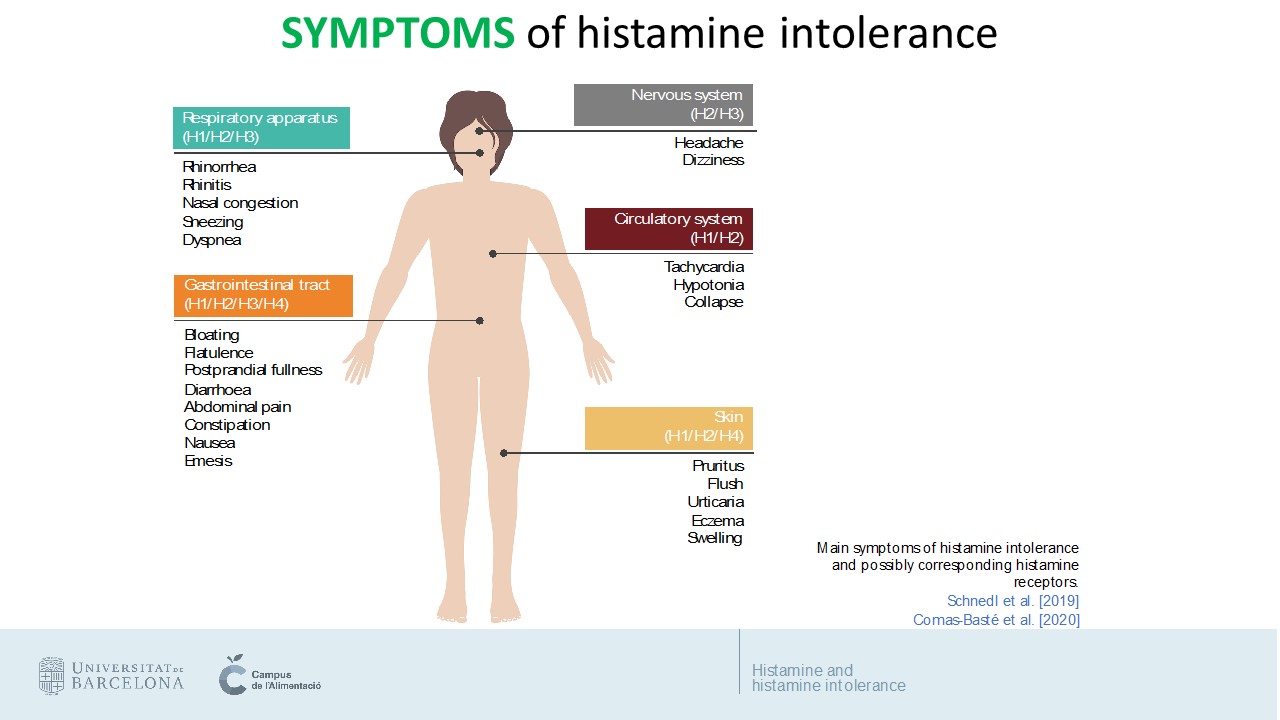Histamine and histamine intolerance by Dr Oriol Comas-Basté, PhD
 Anthea Talliopoulos, APD
Anthea Talliopoulos, APD
Histamine is a biogenic amine, which is naturally high in foods such as fermented sausages, ripened cheeses, alcoholic beverages for instance beer and wine, cheese, tinned fish and also particular vegetables including tomatoes and eggplants. Histamine is naturally degraded in the gastrointestinal tract by the diamine oxidase (DAO) enzyme. However, when histamine intolerance is considered, affected individuals are unable to degrade normal or even low levels of dietary histamine due to an impaired DAO enzyme. This can result in the presence of high levels of histamine in the plasma and the appearance of adverse symptoms including respiratory system (congestion and dyspnoea), nervous system (headaches and dizzyness), gastrointestinal (bloating, diarrhoea and abdominal pain), and skin (eczema, pruritus and swelling).
In diagnosing histamine intolerance, Dr Oriol Comas-Basté explains that there is no current evidence-based diagnostic tool, although this is an area under current research. He discusses that the identification of genetic polymorphisms (SNPs) through a non-invasive test could potentially be used in clinical practice to screen for histamine intolerance in the future. However, in most cases, an elimination diet is more practical in screening for histamine intolerance. If a histamine intolerance is diagnosed or suspected, the dietary management of this includes a low histamine diet (effective in >70% of patients) or exogenous DAO enzyme supplementation. Foods naturally low in histamine include non-fermented foods such as fresh meat, grains, berries, and nuts.
Overall, histamine intolerance is an area of growing research which can be effectively managed through diet to reduce the symptoms observed in individuals. It is important that as clinicians that we are screen individuals for symptoms of histamine intolerance and have a thorough understanding on the dietary implications of a low histamine diet.
Summary:
- Histamine intolerance is a clinical condition characterised by the inability to degrade normal or even low levels of dietary histamine at an intestinal level due to an impaired DAO enzyme activity (not working properly). This leads to the combination of histamine in plasma and the appearance of adverse health effects.
- The aetiology of histamine intolerance may be of a genetic, pathological or of pharmacological origin.
- Affected individuals often present with respiratory, neurological, or gut symptoms. However, there is no current evidence-based diagnostic tool for histamine intolerance.
- The main management of histamine intolerance is a low histamine diet and / or DAO enzyme supplementation.
Dr Oriol Comas-Basté is a postdoctoral researcher and assistant professor at the Department of Nutrition, Food Sciences and Gastronomy of the School of Pharmacy and Food Sciences of the University of Barcelona (Spain). He holds a Ph.D. in Food and Nutrition from the University of Barcelona. His main research interest lies on the study of histamine intolerance and, specifically, on the development of new strategies for the diagnosis and dietary management of this food intolerance.

